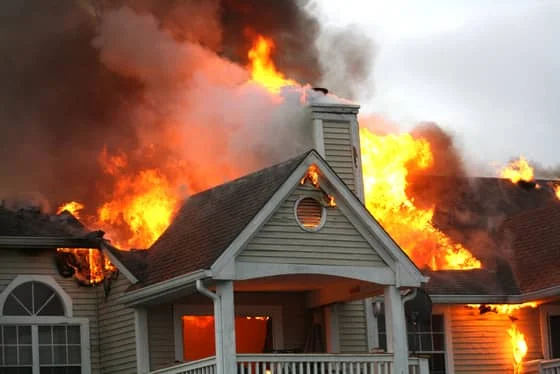Dealing with a house damaged by fire can be emotionally and logistically overwhelming. In Florida, where wildfires are an occasional but persistent threat, the need to sell a fire-damaged home can arise unexpectedly. But what’s the best way to sell a fire-damaged house in Florida, and what should homeowners be aware of during the process?
This comprehensive guide will walk you through the steps of selling a fire-damaged home, from assessing the damage to closing the sale, providing all the knowledge you need to make informed decisions and achieve a successful transaction.
Assessing the Damage
The first step you must take if you want to sell a fire-damaged house in Florida is to assess the extent of the damage. This goes beyond what’s visible and involves a thorough inspection by a professional who is experienced in fire restoration and remodeling. An inspection should cover structural integrity, the state of the electrical and plumbing systems, as well as the overall safety of the home. In Florida, you must also consider the impact of water used to extinguish the fire, given the state’s high humidity and risk of mold growth.
It’s essential to document the damage for insurance and potential buyer purposes. Take photographs and videos, and keep a detailed inventory of items that were in the home at the time of the fire. This will not only help you with your insurance claim but also provide transparency to prospective buyers.
Deciding: Repair or Sell
After assessing the damage, homeowners are faced with a critical decision: whether to repair the fire-damaged house before selling or to sell it as-is. This decision largely depends on the extent of the damage, the financial resources available for repairs, and the current real estate market in Florida.
Repairing the house can potentially increase its value and attract a wider pool of buyers. However, the costs and time involved in restoring a fire-damaged property can be substantial. On the other hand, selling the house as-is means it may sell for a lower price, but it can be a quicker and less stressful process, especially for those looking to move on from the incident swiftly.
Homeowners should consult with a real estate agent experienced in selling fire-damaged properties in Florida to understand the market dynamics. Additionally, getting estimates from contractors can provide a clearer picture of the repair costs involved, aiding in the decision-making process. Ultimately, the choice between repairing and selling as-is should align with the homeowner’s financial situation, timeline, and emotional readiness to proceed.
Selling Options
There are several ways to sell a fire-damaged house in Florida, each with its own set of pros and cons.
Direct Sale to Investors or Specialized Companies
For homeowners looking to sell quickly and without making repairs, a direct sale to a real estate investor or specialized company may be a good option. These buyers often purchase properties in as-is condition, relieving you of the responsibility for repairs. However, the trade-off is that the sale price will likely be lower than if you were to make repairs and sell through traditional channels. Be sure to research potential buyers and understand the terms of the sale, which can sometimes involve non-negotiable prices and fast closings.
Listing with a Real Estate Agent
Listing your fire-damaged home with a real estate agent can help it reach a broader pool of buyers, potentially resulting in a higher sale price. An experienced agent in Florida will understand the local market and be able to properly position your property, but it’s important to find one with experience selling damaged homes. Make sure the agent is transparent about potential legal and financial implications of selling a damaged property.
Auction
Selling at auction can be a quick way to offload a fire-damaged house, but there are risks involved. Auctions require a starting price, and the final selling price can be lower, depending on the bidders. You’ll also need to prepare the property for viewings, which can be challenging with a damaged home.
Closing the Sale
Once you’ve found a buyer, it’s time to close the sale. The process in Florida varies depending on the selling option you choose. If you sell directly to an investor, the process may be simpler and faster with the purchase occurring “as is.” If you sell through an agent, the process will typically follow the traditional steps of a home sale, with potential negotiations for repairs and other contingencies.
In Florida, specific disclosure laws apply to the sale of a fire-damaged property. You are legally obligated to disclose the damage to potential buyers, but the laws also offer protections for sellers. Work closely with your agent or attorney to understand these laws and protect your interests in the transaction.
Conclusion
Navigating the sale of a fire-damaged house in Florida may be challenging and emotionally taxing, yet with meticulous planning and proper advice, securing a buyer and turning the page on this tough situation is achievable. Opting either for traditional repairs and sale or choosing a faster, as-is transaction requires a firm grasp of the market, legal responsibilities, and the extent of the damage.
Remember that each selling option comes with its own trade-offs, and the best choice for you will depend on your unique circumstances. Consult with real estate professionals and legal experts to ensure that you make the most informed decision possible.
With patience and the right approach, you can successfully sell your fire-damaged home in Florida, allowing you to move forward and rebuild. And in the face of such a harrowing event, that’s the most important step of all.

